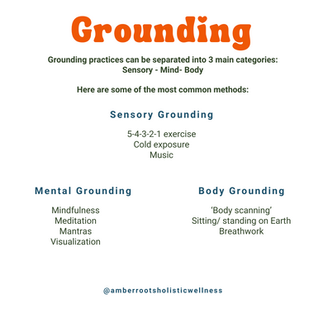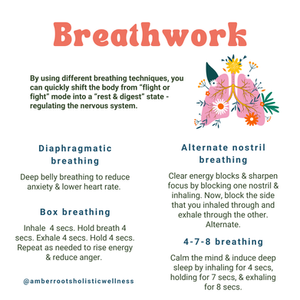Mental Health Tips & Tricks
- jenndillin
- Feb 8
- 5 min read
In this blog post, I will be sharing information on how you can improve your mental health & maintain a positive mindset with easy stress reducing techniques and brain supporting habits.
If you've read my story - you'll know that struggling with mental illness is something that I have personal experience with. From the age of 12 to 29 I dealt with various mental disorders that affected my daily routine, my relationships, and my outlook on life. But- by adopting some of the practices listed below and making a few lifestyle changes, I have significantly reduced my issues over the last few years & no longer require prescription drugs to manage my symptoms.
Mental health is something that I have become very passionate about and I believe that everyone should have access to tools and information that can improve their wellbeing.. mentally, emotionally, physically, & spiritually!
This blog post is meant to be used as a guide - a resource.
What resonates with you the most at this time? Take what you need.
1 in 8 people live with a mental disorder - 970 million total.
Depression and anxiety are the most common mental health conditions, affecting 581 million people globally.
Most people do not have access to professional care / treatment.
-- 6 simple ways to improve your mental health -- (these are in no specific order)
Adequate sleep
- Adults need 7 hours minimum every night in order to avoid the affects of sleep deprivation. Not getting the proper amount of good quality sleep can result in tiredness, irritability, reduced focus, poor memory, weight gain, heart issue, and more.
- Insomnia, Restless Leg Syndrome, Mouth breathing, and Sleep Apnea all affect sleep quality & should be treated at the root cause in order to improve overall sleeping habits.
- 10 Tips for better sleep:
1. shut off screens 1 hour before bed
2. use herbs that relax the nervous system & mind before bed; like chamomile, hops, passion flower or lemon balm
3. exercise during the day
4. play music specifically designed for sleep >> playlist <<
5. avoid bright LED lights after sunset
6. limit caffeine intake after noon
7. try breathing exercises to induce sleep (4-7-8 method)
8. minimize light & noise exposure once in bed (eye mask / ear plugs)
9. refrain from naps during the day/ set consistent bed time
10. don't eat heavy or hard to digest meals at night
Grounding Practices
- Sensory grounding: Activate the 5 senses to pull you into the present moment and makes you aware of your environment.
- Mental grounding: Practices that engage the brain. This can be used as distraction for disturbing situations or as a method to direct attention towards something positive.
- Physical grounding: Tapping into the body to restore a calm state of being and reduce stress & tension.
- Mantras:
1. I am calm. I can handle this.
2. I am safe & protected from harm.
3. I can overcome anything.
4. This problem is only temporary.
5. I am worthy.
6. I am grounded & centered.
7. I am not my thoughts.
8. My mind is clear & focused.
9. My heart is open & pure.
10. I am grateful for this life.
3. Proper Nutrition
- A balanced diet that is rich with micronutrients will support the brain and lower the chances of mental illness.
- Healthy gut function is also very important for retaining stable emotions & good mental health. If the digestive system is not breaking down food properly.. your body / brain are not absorbing the key nutrients from the foods you're eating.
- Recent studies have shown that people who struggle with chronic constipation are at a higher risk of cognitive decline, depression, and anxiety than those who experience regular bowel movements. Eating a fiber filled diet & drinking sufficient water can greatly improve the frequency & efficiency of waste removal.
- Top vitamins & minerals for brain health:
1. Omega 3 Fatty acids - prevention & treatment of anxiety and depression. Can optimize mood stability and cognitive function.
Found in - Flaxseed, chia seeds, hemp seeds, kidney beans, walnut, fish, seafood, seaweed.
2. Vitamin B 12- production of serotonin and prevention of loss of neurons.
Found in - Beef, pork, chicken, lamb, tuna, salmon, sardines, eggs, milk, cheese, yogurt.
3. Vitamin B - produce the energy needed to develop new brain cells.
Found in - Beef, chicken, pork, liver, tuna, salmon, sardines, eggs, milk, yogurt, cheese, whole grains, legumes, dark leafy veggies, nuts, seeds.
4. Vitamin C - critical for cognitive performance.
Found in - Citrus, red pepper, berries, broccoli, brussel sprouts, spinach, potatoes.
5. Vitamin D - support the growth of new brain cells and serotonin production.
Found in - Fatty fish, egg yolks, mushrooms, cheddar & swiss cheese, tofu, fortified dairy.
6. Vitamin E - an antioxidant that protects the cells from damaged caused by oxidative stress.
Found in - Sunflower seeds, almonds, peanut butter, spinach, red bell pepper, broccoli, asparagus mango, kiwi, trout.
7. Magnesium - healthy brain development.
Found in - Tofu, legumes, seeds, nuts, brown rice, dark green leafy veggies.
8. Potassium - an electrolyte that slows down the central nervous system. Low potassium can equal anxiety, worry, and restlessness.
Found in - Avocado, potatoes, spinach, beans, legumes, watermelon, kiwi, coconut water.
9. Zinc - helps the brain direct cell activities.
Found in - Pumpkin seeds, sunflower seeds, hemp seeds, cashews, oatmeal, chickpeas, beans, eggs, chicken, beef, lobster, oysters, tofu, dark chocolate.
Movement
- 150 mins of moderate-intensity exercise per week can boost your memory, improve your thinking skills, lessen stress, and reduce depression & anxiety.
- physical activity increases blood flow to the brain and releases serotonin & dopamine.
* Serotonin: a hormone that stabilizes mood
* Dopamine: the "happy" hormone in control of our internal reward system.
- The best exercises for mental health:
Yoga
Pilates
Walking / Jogging / Hiking
Cycling
Strength training
Dance
Swimming
Boxing
Tai Chi
Emotional awareness
- Those with lower emotional awareness have a higher chance of dealing with mental health problems. Studies show that teenagers have a more difficult time explaining specific feelings when compared to adults or children.
- Journaling can be a great way to express any emotions you may be experiencing. It can be as simple as stating the name of the emotion or you can draw your emotions on a 'body map'. Many different symbols can be used to represent emotions on a body map... shapes, scribbles, colors, etc. - get creative! This is a great method to use when you want to physically track your moods.
- Having emotional awareness allows you to share your feelings with others while recognizing the emotions of those around you. This leads to better communication, problem solving, increased empathy, and stress management.
Community
- a sense of community provides 3 key elements for positive mental health; belonging support, purpose. When these things are present in someone's life, there is less chance of feeling lonely and isolated. People that feel accepted within a circle usually have a sense of validation & higher self worth than those that don't have a supportive group of people.
- Community can be build on common beliefs, values, interests, hobbies, religion, experiences, goals ... the possibilities are endless.
- Certain communities can offer resources that are beneficial to your specific needs. People can hold space & show empathy for you. Hearing stories from others can help you process your own trauma & show you that you are not alone!
Resources
National Suicide Prevention Lifeline: 988
Crisis Text Line: Text HOME to 741741
Substance Abuse and Mental Health Services Administration National Helpline:
1-800-662-HELP (4357)
Disaster Distress Helpline: Call or text 1-800-985-5990 ~ 24 hour line providing immediate crisis counseling for people experiencing emotional distress related to any natural or human-caused disaster.
Multiple resource links by specific category << here >>
I hope you found the information in the post helpful and can integrate some of the tips into your own wellness journey. Remember, you are never alone in this battle!
Share with a friend. ❤









Comments